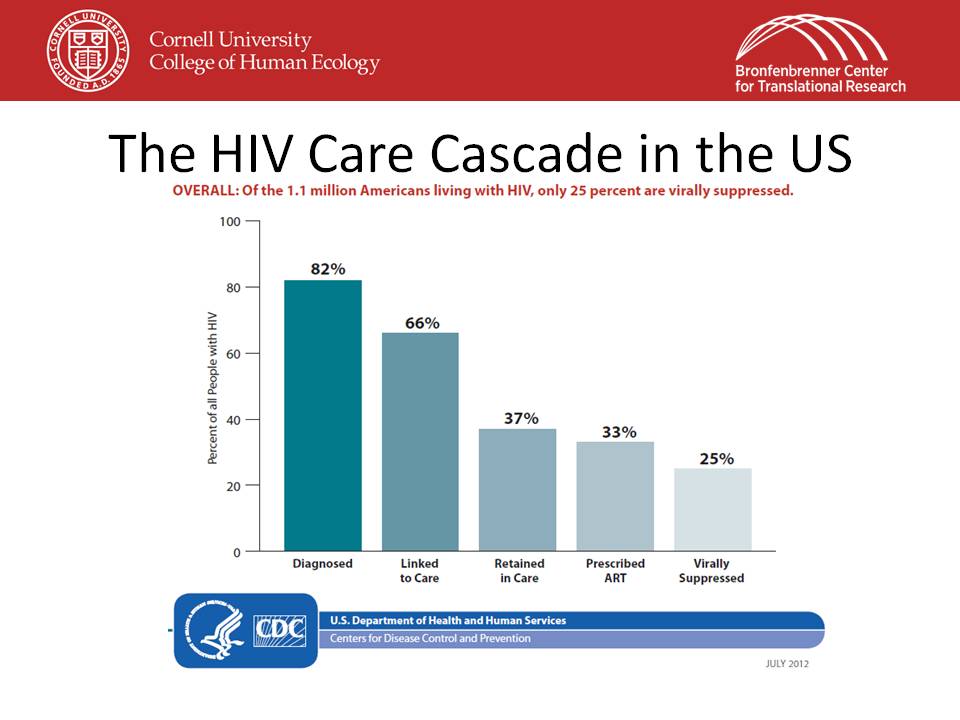 A new report from the U.S. Centers for Disease Control this week gave me pause: There are 60,000 new HIV infections in the U.S. each year. Nearly 25 percent of new HIV cases occur in people ages 13 to 24, and more than half of them don’t know they are infected. That means each year, more than 7,000 teen-agers and young adults contract a chronic, fatal disease without realizing it.
A new report from the U.S. Centers for Disease Control this week gave me pause: There are 60,000 new HIV infections in the U.S. each year. Nearly 25 percent of new HIV cases occur in people ages 13 to 24, and more than half of them don’t know they are infected. That means each year, more than 7,000 teen-agers and young adults contract a chronic, fatal disease without realizing it.
The good news is, researchers are uncovering new evidence on the best ways to help those newly-infected with HIV. Two new systematic reviews found broad-based routine screenings for HIV can help reduce the spread of the virus, and that screening during pregnancy helps reduce the chance the HIV virus will be transmitted from mother to child. Both were published in the Annals of Internal Medicine.
The first review included randomized trials and observational studies that compared HIV screening strategies, evaluated the effects of starting anti-retroviral therapy at different stages of the disease or reported how these kinds of interventions impacted the risk of transmission.
It concluded that only screening groups of people with a high risk of contracting HIV misses a substantial proportion of cases. Broad-based routine screening for HIV allows more people to start anti-retroviral therapies early in the course of HIV infection. This reduces their risk of sickness and death, and also reduces transmission of the virus to others.
The second review focused specifically on HIV-positive pregnant women. It included randomized trials and longitudinal studies that investigated the risks for a mother transmitting HIV to her unborn child, and the effects of prenatal HIV screening or antiretroviral therapy during pregnancy.
The review found that women who take antiretroviral therapy, avoid breastfeeding and elect to have a cesarean section reduce their risk of transmitting HIV to their child.
The bottom line: Contracting the HIV virus is still a real risk today, but routine screening and early treatment can make a positive impact on the health of HIV-positive patients and reduce the spread of the disease.
Editor’s note: Cornell’s Bronfenbrenner Center on Translational Research will offer streaming sessions from the 2012 International AIDS Conference.
What: Turning the Tide on HIV/AIDS: 2012 International AIDS Conference
When: 8:30 a.m . to 4:45 p.m. on Friday, December 7, 2012
Where: 102 Mann Library
Topics: Preventing mother-to-child transmission; structural inequalities and their impact on the HIV epidemic; strategies for “turning the tide together.
Visit the BCTR web site for more information.



This article is very nice . HIV screening is very essential for us health. It can help reduce the spread of the virus. Thank you for the information.